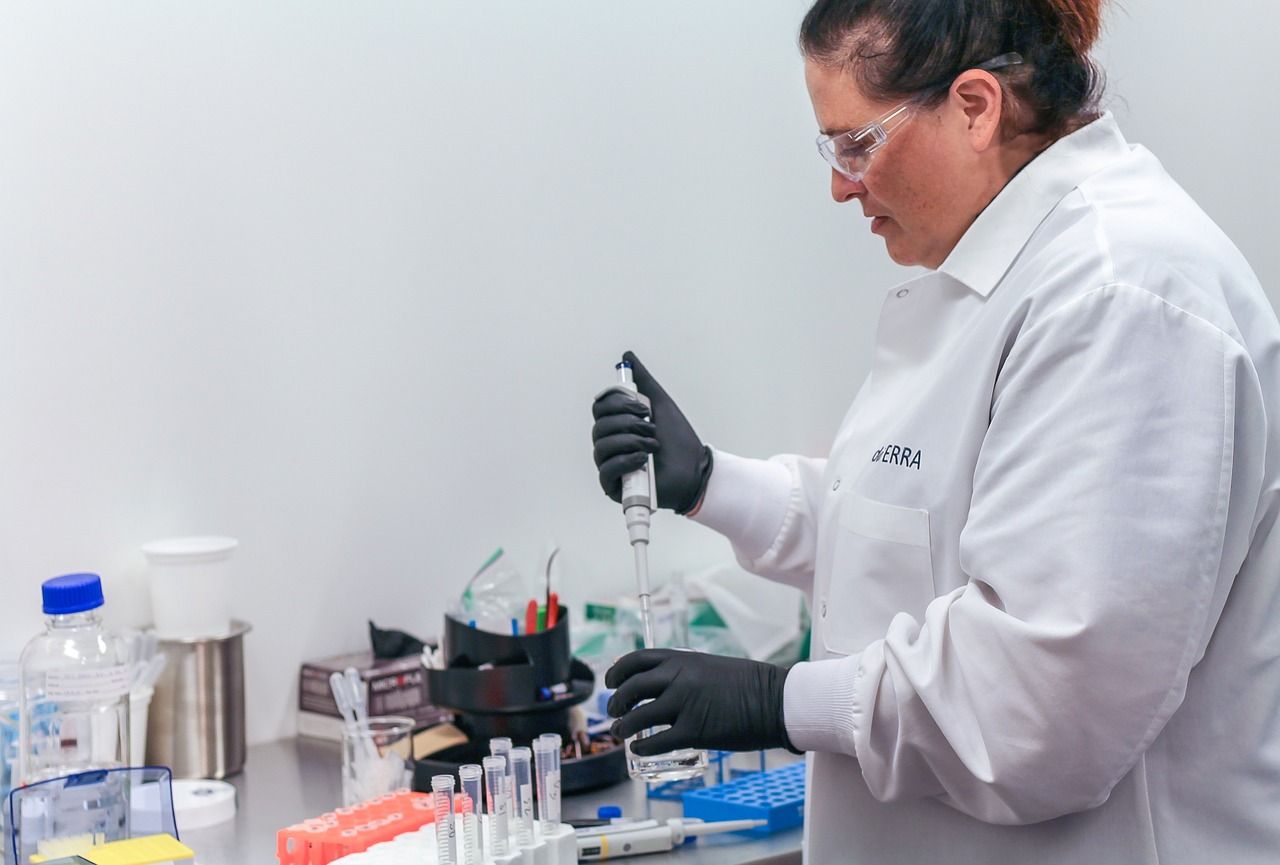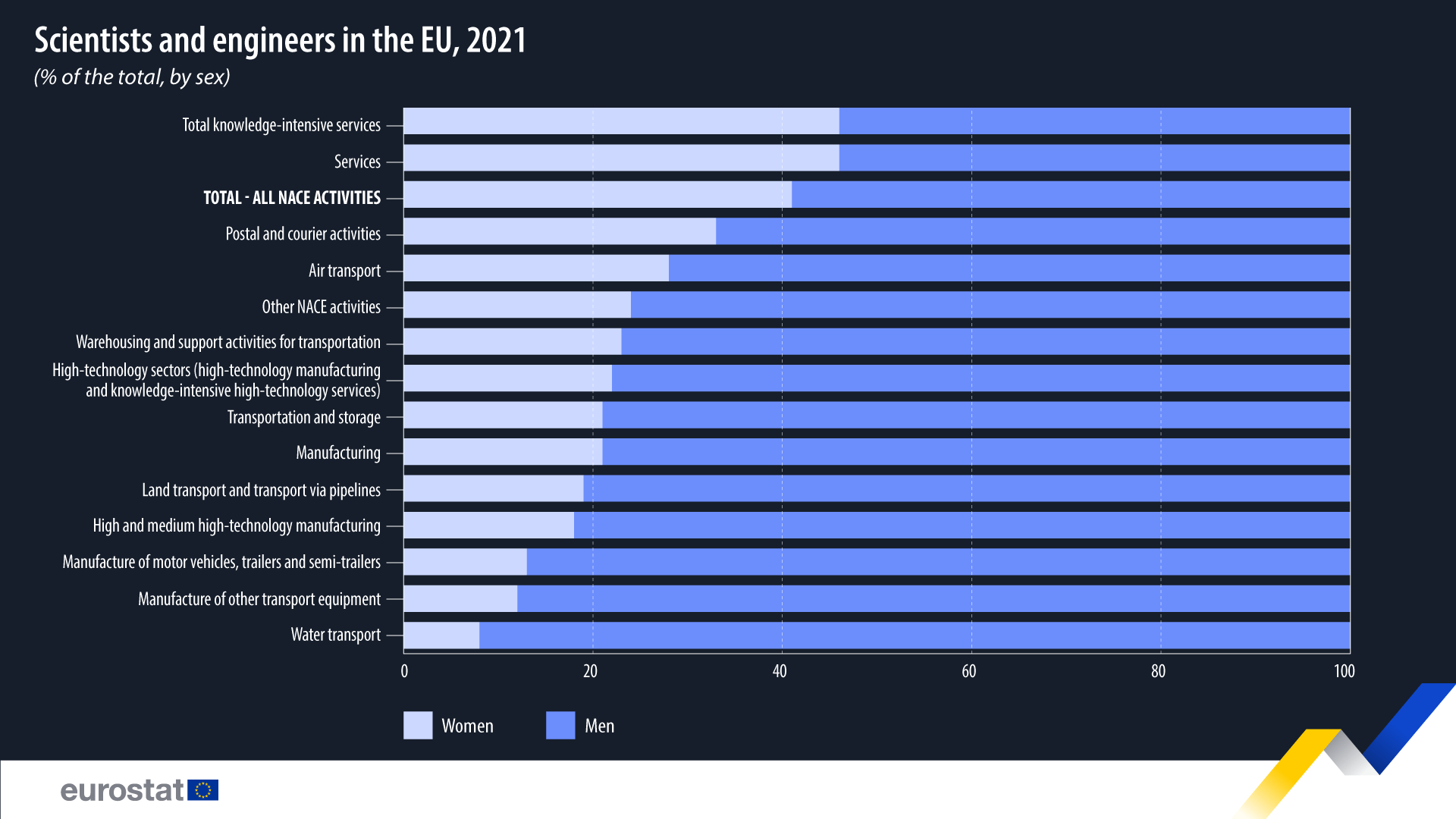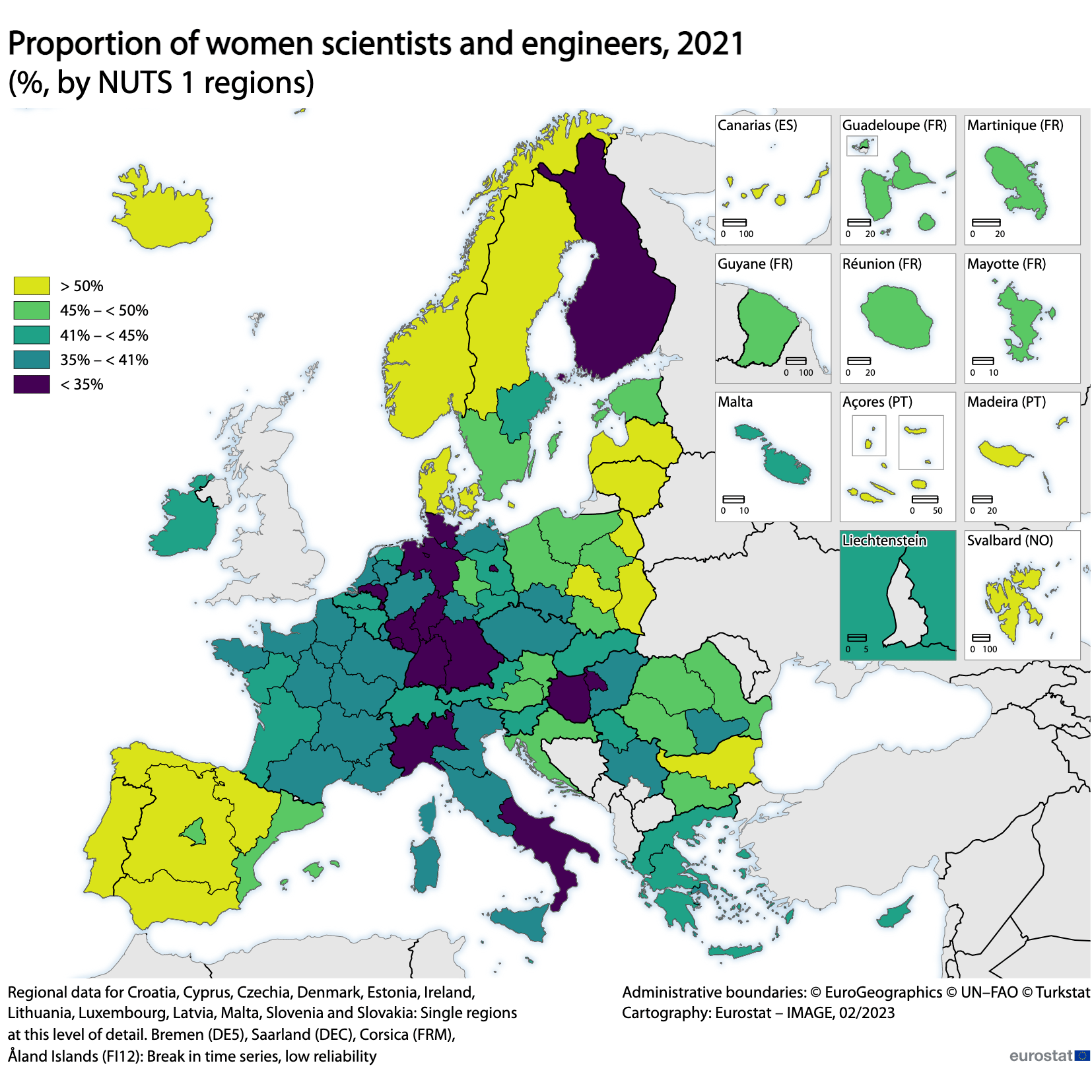41% of total employment in science and engineering accounted for 6.9 million women scientists and engineers in the EU in 2021, 369 800 more than in 2020
Women are under-represented by industry in all sectors of the EU statistical classification of economic activities, although the services sector has a more balanced gender balance (46% of scientists and engineers are women). In the air transport industry, women represent 28 per cent, while in the manufacturing sector, women represent only 21 per cent of scientists and engineers. The lowest number of women is found in the water transport sector (only 8 women), in the production of transport equipment (12%) and in the automotive sector (13%).
Looking at the specific high-tech related aggregates, women represented 46% of the scientists and engineers in the knowledge-intensive services, 22% in the high-technology sectors (high-technology manufacturing and knowledge-intensive high-technology services) and only 18% in the high and medium-technology manufacturing.

Who are smarter, rocket scientists or brain surgeons? |
Among the EU Member States, the proportion of female scientists and engineers varied widely in 2021. The highest shares were registered in Lithuania (52%) and Bulgaria, Latvia and Portugal (all 51%) and the lowest in Luxembourg (35%), Germany and Italy (both 34%), Hungary (33%) and Finland (31%).
At NUTS 1 regional level, female scientists and engineers were in the majority in 14 EU regions:
- four regions of Spain: Centre and Canary Islands (both 55%), North-West (52%) and North-East (51%),
- all three regions of Portugal: Região Autónoma dos Açores (62%), Madeira (57%) and Continental Portugal (51%),
- Severna i yugoiztochna in Bulgaria (56%), Makroregion Centralny (55%) and Makroregion Wschodni (53%) in Poland, Northern Sweden (52%), as well as Lithuania (52%) and Latvia (51%) (single regions at this level of detail).
- and Denmark with 50%.
At the other end of the scale, the smallest proportion of female scientists and engineers was recorded in the German regions of Baden-Württemberg (30%) and Bayern (31%), as well as the Finnish region of Manner-Suomi and the Hungarian region of Közép-Magyarország, which were also both 31%.
This news item marks the International Day of Women and Girls in Science, celebrated on 11 February.








Leave a Reply